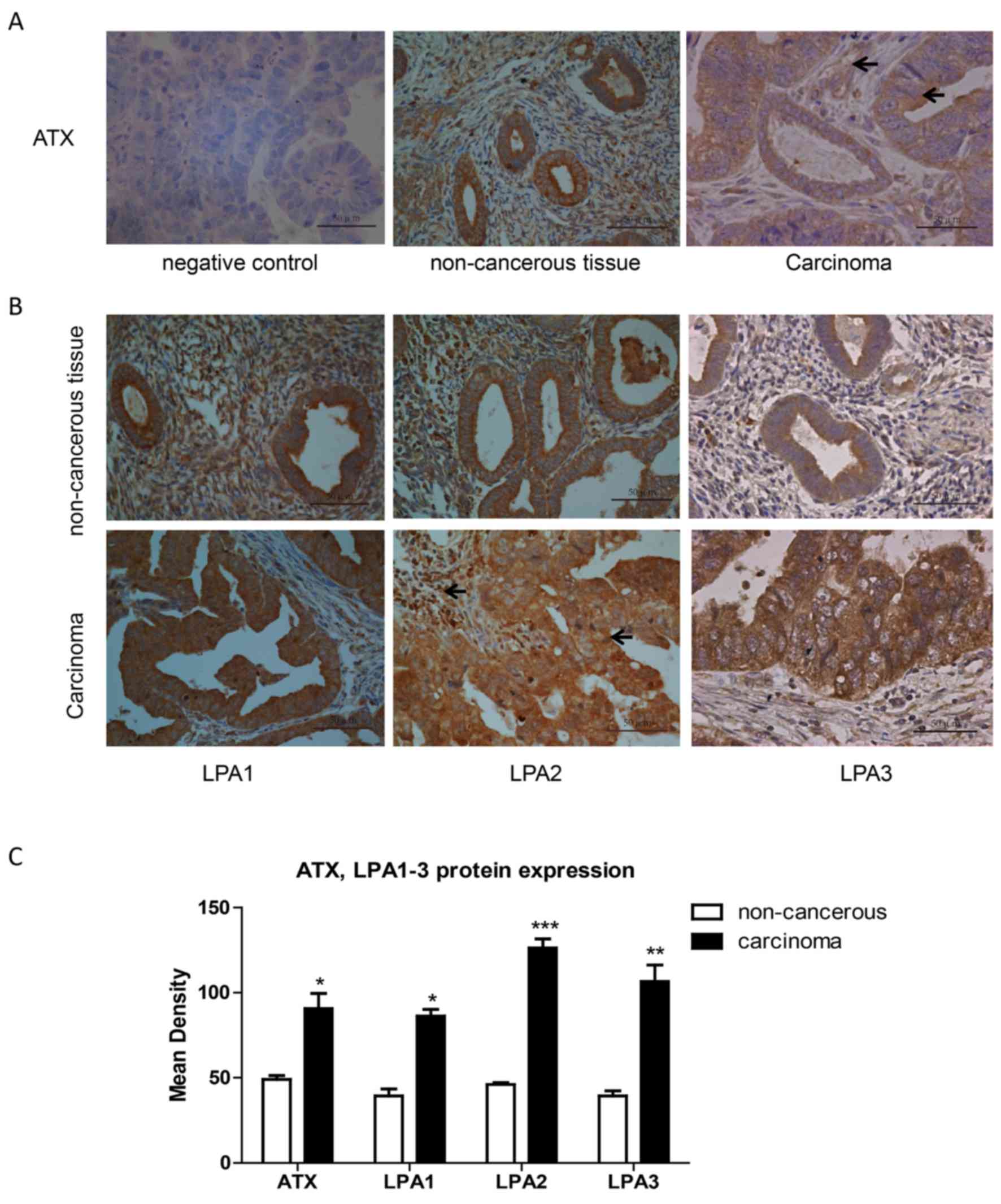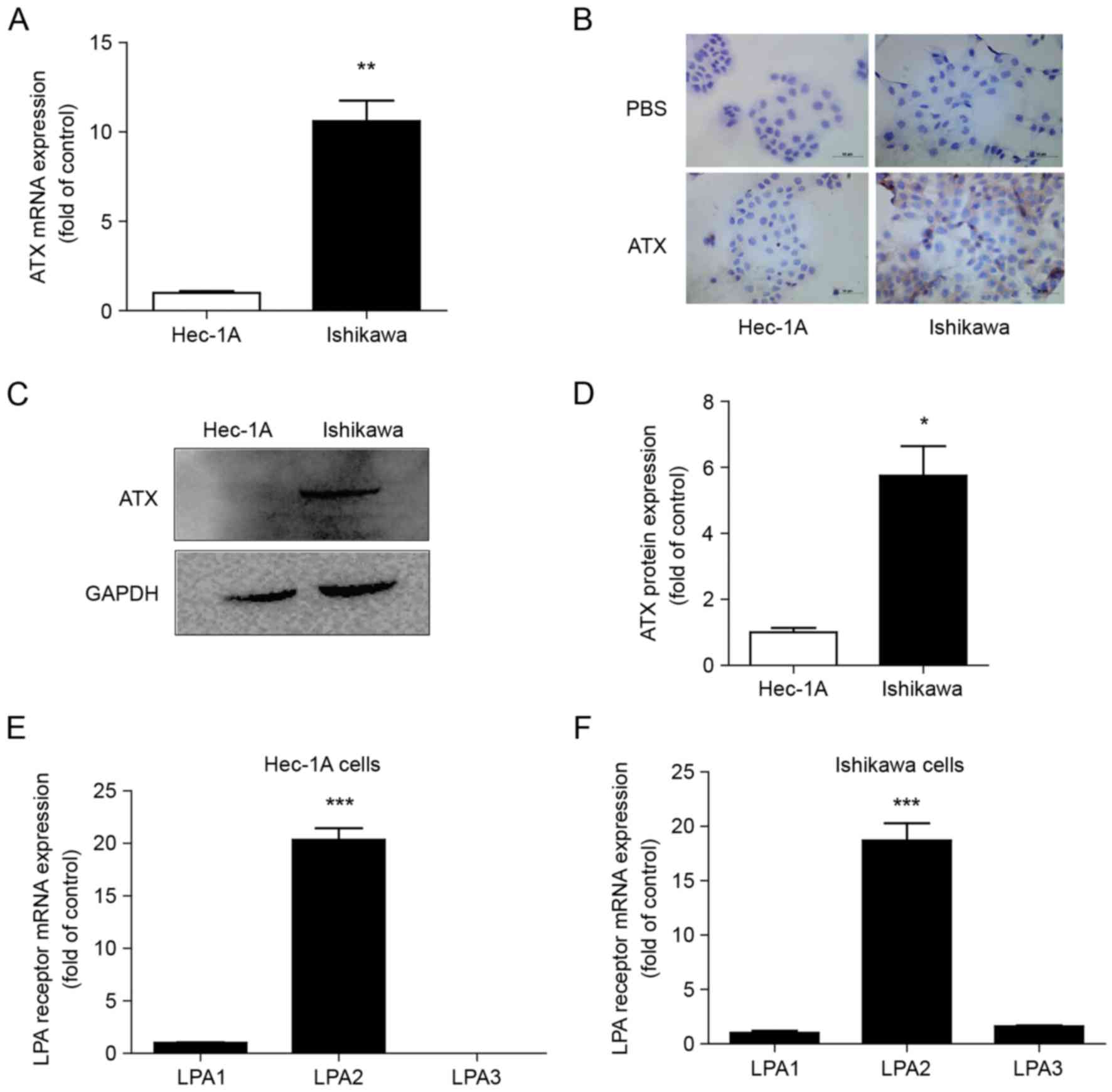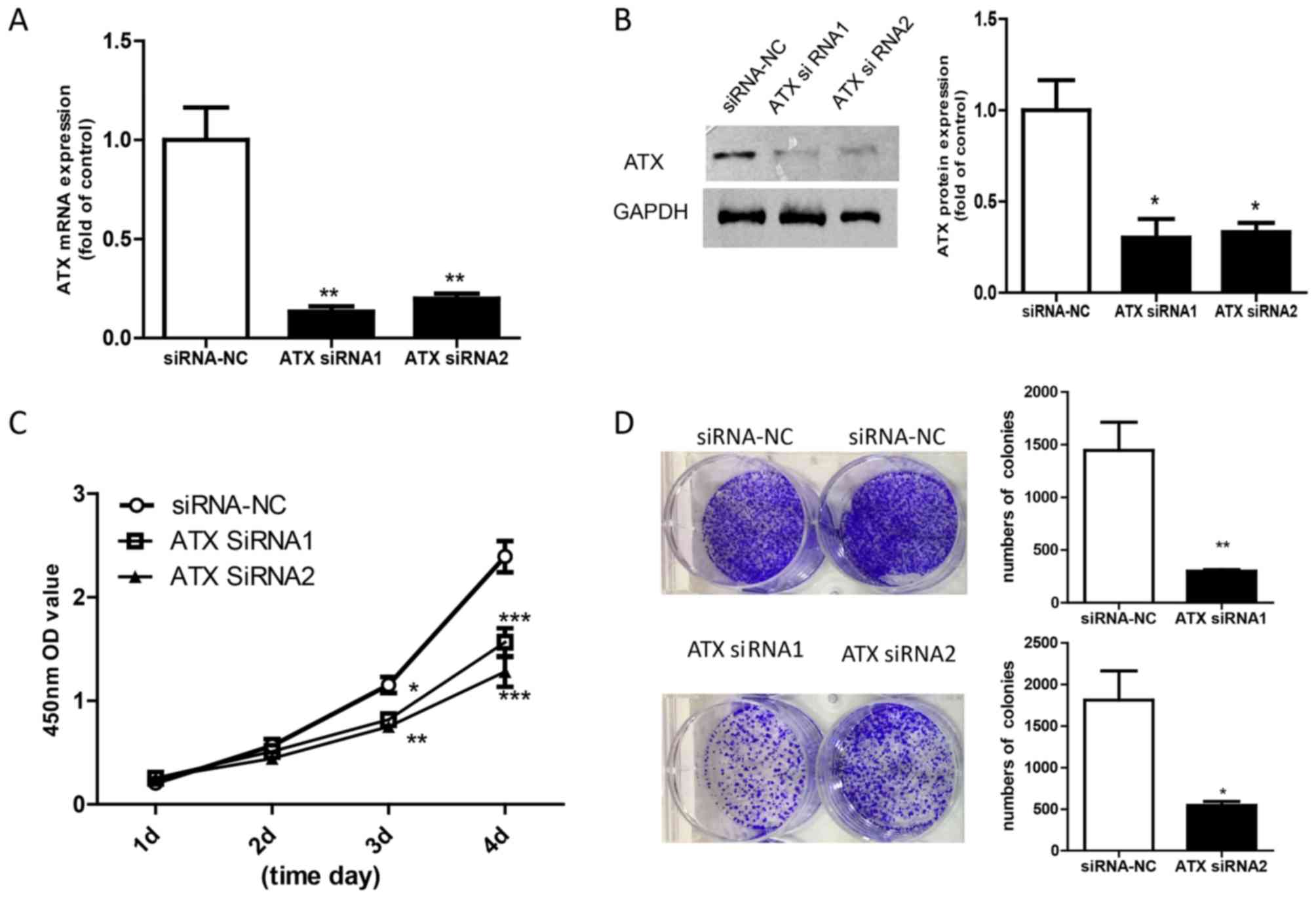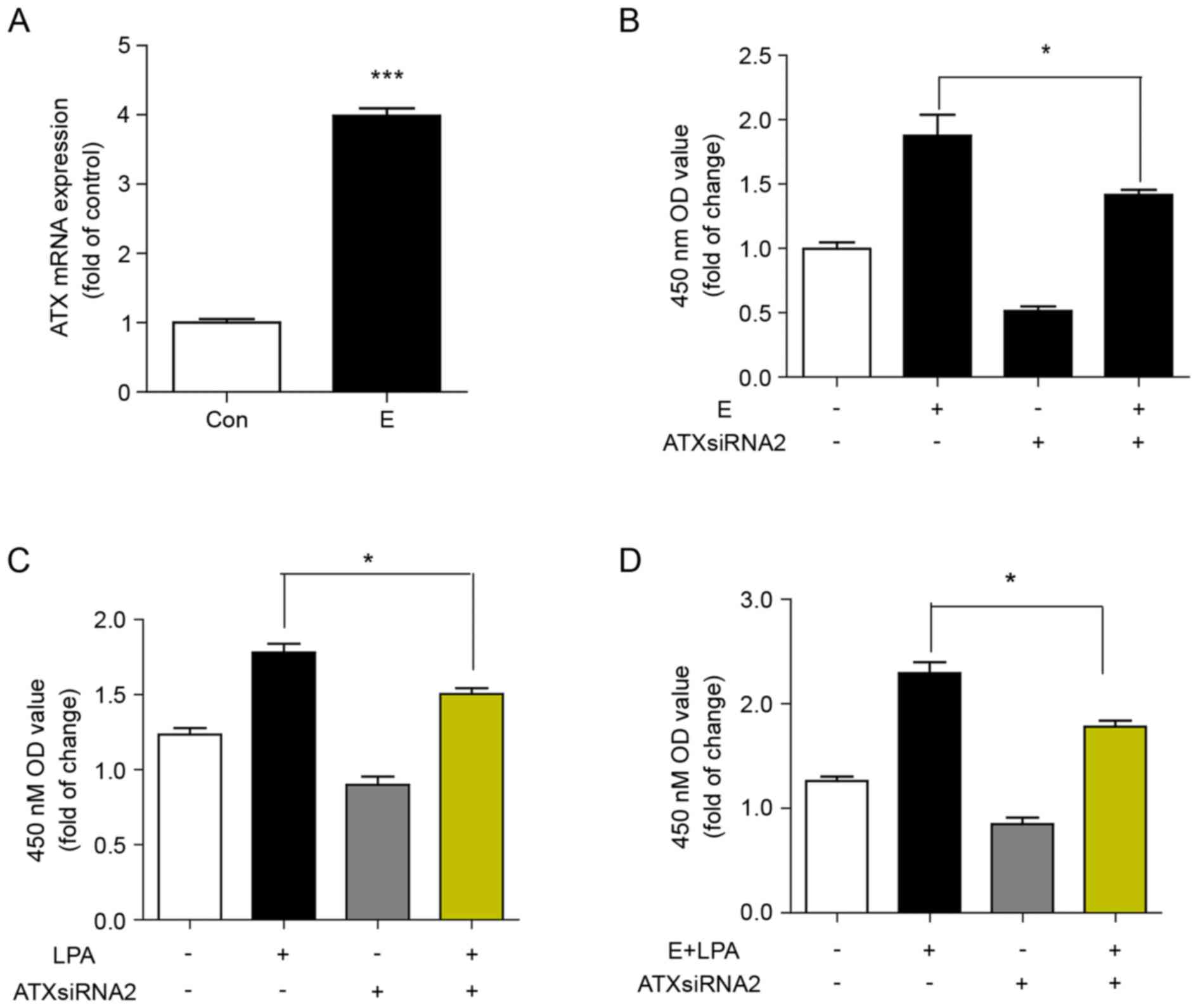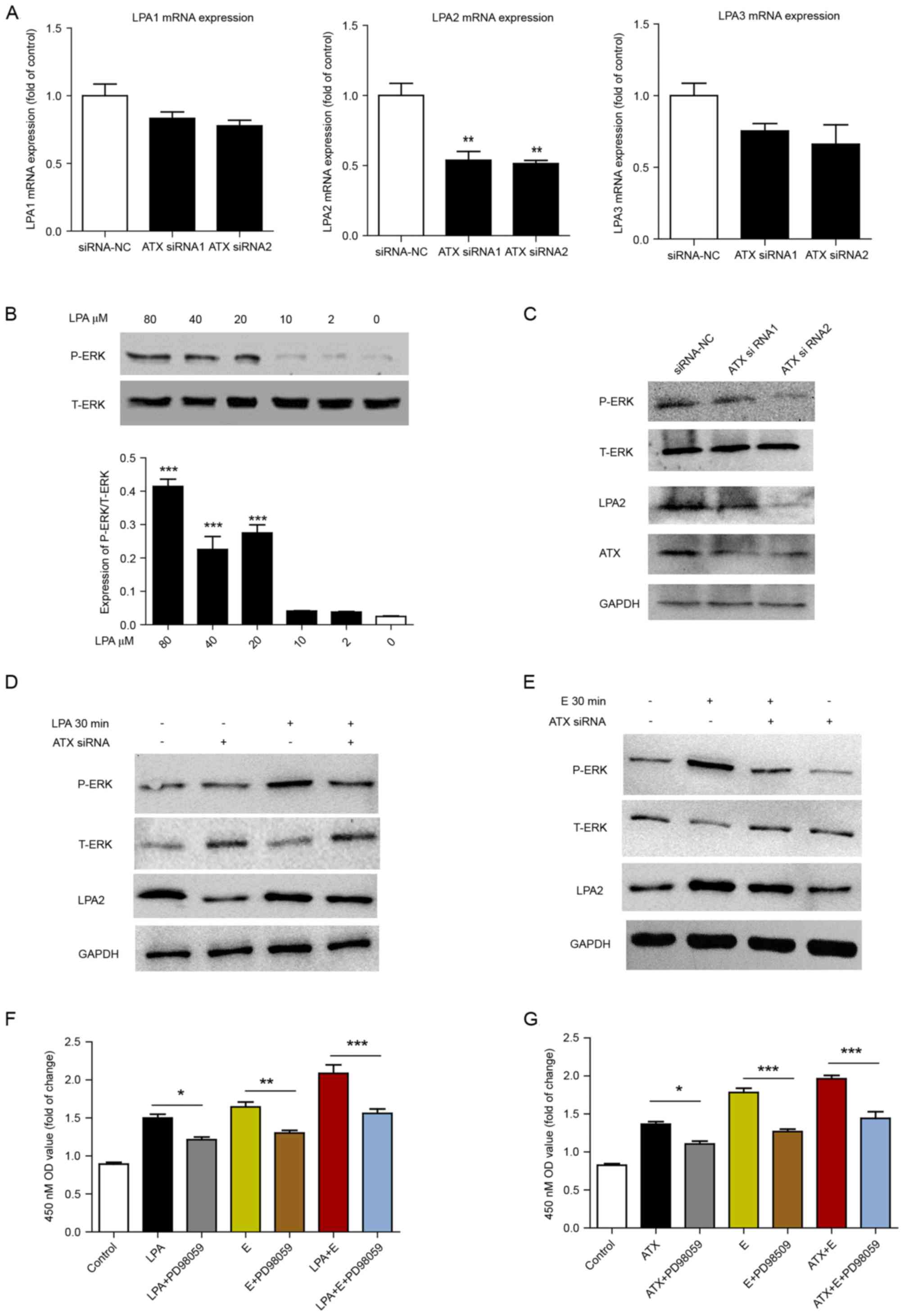|
1
|
Globocan. 2012, http://globocan.iarc.fr/Pages/online.aspx4–July.
2016
|
|
2
|
National Cancer Institute, .
PDQ® screening and prevention editorial board. PDQ
endometrial cancer prevention. Bethesda, MD: National Cancer
Institute; 2016, http://www.cancer.gov/types/uterine/hp/endometrial-prevention-pdq11–January.
2015[PMID: 26389477].
|
|
3
|
Jeppesen MM, Mogensen O, Hansen DG,
Iachina M, Korsholm M and Jensen PT: Detection of recurrence in
early stage endometrial cancer-the role of symptoms and routine
follow-up. Acta Oncol. 56:262–269. 2017. View Article : Google Scholar
|
|
4
|
Busch EL, Crous-Bou M, Prescott J, Chen
MM, Downing MJ, Rosner B, Mutter GL and De Vivo I: Endometrial
cancer risk factors, hormone receptors, and mortality prediction.
Cancer Epidemiol Biomarkers Prev. 26:727–735. 2017. View Article : Google Scholar
|
|
5
|
Benesch MG, Tang X, Venkatraman G, Bekele
RT and Brindley DN: Recent advances in targeting the
autotaxin-lysophosphatidate-lipid phosphate phosphatase axis in
vivo. J Biomed Res. 30:272–284. 2016.
|
|
6
|
Volden PA, Skor MN, Johnson MB, Singh P,
Patel FN, McClintock MK, Brady MJ and Conzen SD: Mammary adipose
tissue-derived lysophospholipids promote estrogen receptor-negative
mammary epithelial cell proliferation. Cancer Prev Res (Phila).
9:367–378. 2016. View Article : Google Scholar :
|
|
7
|
Gaetano CG, Samadi N, Tomsig JL, Macdonald
TL, Lynch KR and Brindley DN: Inhibition of autotaxin production or
activity blocks lysophosphatidylcholine-induced migration of human
breast cancer and melanoma cells. Mol Carcinog. 48:801–809. 2009.
View Article : Google Scholar :
|
|
8
|
Ptaszynska MM, Pendrak ML, Bandle RW,
Stracke ML and Roberts DD: Positive feedback between vascular
endothelial growth factor-A and autotaxin in ovarian cancer cells.
Mol Cancer Res. 6:352–363. 2008. View Article : Google Scholar :
|
|
9
|
Hope JM, Wang FQ, Whyte JS, Ariztia EV,
Abdalla W, Long K and Fishman DA: LPA receptor 2 mediates
LPA-induced endometrial cancer invasion. Gynecol Oncol.
112:215–223. 2009. View Article : Google Scholar
|
|
10
|
Livak KJ and Schmittgen TD: Analysis of
relative gene expression data using real time quantitative PCR and
the 2(-Delta Delta C(T)) method. Methods. 25:402–408. 2001.
View Article : Google Scholar
|
|
11
|
Wasniewski T, Woclawek-Potocka I,
Boruszewska D, Kowalczyk-Zieba I, Sinderewicz E and Grycmacher K:
The significance of the altered expression of lysophosphatidic acid
receptors, utotaxin and phospholipase A2 as the potential
biomarkers in type 1 endometrial cancer biology. Oncol Rep.
34:2760–2767. 2015. View Article : Google Scholar
|
|
12
|
Droog M, Nevedomskaya E, Dackus GM, Fles
R, Kim Y, Hollema H, Mourits M, Nederlof PM, van Boven HH, Linn SC,
et al: Estrogen receptor α wields treatment-specific enhancers
between morphologically similar endometrial tumors. Proc Natl Acad
Sci USA. 114:pp. E1316–E1325. 2017; View Article : Google Scholar :
|
|
13
|
Kehlen A, Englert N, Seifert A, Klonisch
T, Dralle H, Langner J and Hoang-Vu C: Expression, regulation and
function of autotaxin in thyroid carcinomas. Int J Cancer.
109:833–838. 2004. View Article : Google Scholar
|
|
14
|
Kehlen A, Lauterbach R, Santos AN, Thiele
K, Kabisch U, Weber E, Riemann D and Langner J: IL-1 beta- and
IL-4-induced down-regulation of autotaxin mRNA and PC-1 in
fibroblast-like synoviocytes of patients with rheumatoid
arthritis(RA). Clin Exp Immunol. 123:147–154. 2001. View Article : Google Scholar :
|
|
15
|
Sawada K, Morishige Ki, Tahara M, Ikebuchi
Y, Kawagishi R, Tasaka K and Murata Y: Lysophosphatidic acid
induces focal adhesion assembly through Rho/Rho-associated kinase
pathway in human ovarian cancer cells. Gynecol Oncol. 87:252–259.
2002. View Article : Google Scholar
|
|
16
|
Fishman DA, Liu Y, Ellerbroek SM and Stack
MS: Lysophosphatidic acid promotes matrix metalloproteinase (MMP)
activation and MMP-dependent invasion in ovarian cancer cells.
Cancer Res. 61:3194–3199. 2001.
|
|
17
|
Meng Y, Kang S and Fishman DA:
Lysophosphatidic acid inhibits anti-Fas-mediated apoptosis enhanced
by actin depolymerization in epithelial ovarian cancer. FEBS Lett.
579:1311–1319. 2005. View Article : Google Scholar
|
|
18
|
Sun H, Zhu Q, Ren J, Wu L, Kong FZ, Li G
and Hu HF: Influence of lysophosphatidic acid on proliferation,
adhesion, migration and apoptosis of cervical cancer HeLa cells. Xi
Bao Yu Fen Zi Mian Yi Xue Za Zhi. 25:702–705. 2009.(In
Chinese).
|
|
19
|
Benesch MG, Tang X, Dewald J, Dong WF,
Mackey JR, Hemmings DG, McMullen TP and Brindley DN: Tumor-induced
inflammation in mammary adipose tissue stimulates a vicious cycle
of autotaxin expression and breast cancer progression. FASEB J.
29:3990–4000. 2015. View Article : Google Scholar
|















